
11 minute read
THROUGH THE YEARS
1983 Adoption, Wales Goebel (Left)
WRITTEN BY NEISHA ROBERTS & JENNY RIDDLE
Advertisement
Although 175,000 adoptions occurred in the United States in 1970, little structure and regulation existed. More significant, gospelcentered adoption practices were almost non-existant. By 1973, the landmark case of Roe v. Wade led to the legalization of abortion across the nation. Many women with unexpected pregnancies found themselves with a difficult choice between abortion or to place their child with someone they did not know and could not meet.
children placed in these families are raised with the truth of who Jesus Christ is as their Lord and Savior. In February 1982, Lee and Eugenia Birch became Lifeline’s first adoptive family. Vulnerable women of all ages, races, and backgrounds connected with Lifeline for support. In 1984, Lifeline Village was founded to meet not only a young lady’s spiritual needs, but her emotional, physical, social, and intellectual ones as well. Many birth mothers needed a refuge and safe haven to retreat to in the wake of a crisis pregnancy. ‘80s BEGINNINGS Leaving behind a prosperous business in the early 1960s, To this day, Lifeline Village places girls into a stable and nurturing home environment where consistent love, discipline, and direction is given. Wales and Jean Goebel received a God-given burden for young girls who were faced with an unplanned pregnancy. In 1980, the Sav-A-Life crisis pregnancy center outreach was founded to counsel these young women toward options for the life of their unborn child.
Renee Griffin, Lifeline’s second staff member commented, “Our heart was to offer the truth of the gospel to these women but also offer them options. If they chose to parent, we wanted to equip them to do so. If they wanted to place their baby for adoption, we wanted to make sure we had Christian families lined up. This was not about just saving babies. We walked with these women and supported them.”
OUR FIRST ADOPTION
As a ministry, Lifeline’s commitment has always been to work with Christian families to ensure that
GOSPEL FOCUS FROM THE START
In the early 80s, the staff grew to seven. One new addition was social worker Chuck Johnson. Chuck later became Lifeline’s executive director in 1997. Recently, Chuck said, “We prayed as a staff at the start of every day — for each other, for clients, for foster families, for the babies by name, and that God would both use Lifeline for His glory and that He would provide the resources we needed to accomplish every opportunity that came our way. In fact, as a 22-year-old, this is really how I first learned to pray out loud and in front of others and to hold nothing back.” Longtime Lifeline staffer Lynn Beckett added, “Mr. Carr set the tone for Lifeline from the start — filling the ministry with compassion, a commitment to biblical principles, and a high level of excellence and sacrificial giving.”
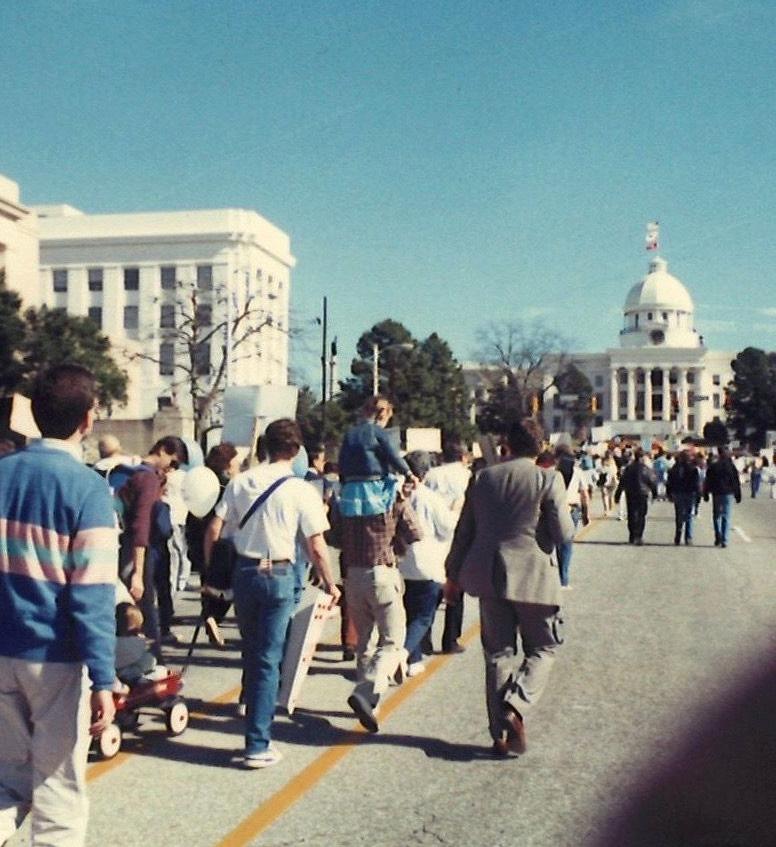
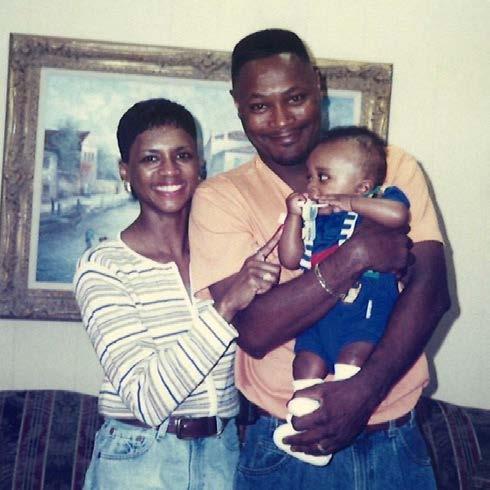
‘90s In 1992, Lifeline Village moved to Pell City, Alabama. Also in 1992, current ‘00s By 2005, the International Adoption team grew by eight staff members. Senior Program Director of God sent more adoptive
International Programs, Jana Lombardo, began families as more families became aware of needs as an intern. She cherished Mr. Carr’s priority in around the world. Three years after our first combeginning the practice of daily morning prayer as pleted international adoption from China, Lifeline a staff early on to keep staff grounded in Scripture was licensed for adoption in Ukraine. The Ukraine and to pray over their day. Now 40 years later, program saw its first completed adoption in 2003.
Lifeline staff still begin each morning in the Word and in prayer. INTERNATIONAL ADOPTION GROWS In 2003, Lifeline hired our third executive direc-
A GLOBAL FOCUS tor, Herbie Newell. Herbie came from Warren,
The late 90s brought a global focus to Lifeline’s Averett, Kimbrough, & Marino where he served ministry. In 1999, Lifeline began an international as a Senior Accountant. The new role at Lifeline adoption program placing children from China. was not only a new career direction but also the
Currently Lifeline’s ministry extends to the furthering of a calling to take the gospel to vulcountries of China, Ukraine, Peru, Uganda, nerable children and families that he and his wife,
Hungary, Liberia, Pakistan, Costa Rica and Ashley, had felt for many years.
Honduras, and has provided hundreds of orphans Six more countries were added to the around the globe with loving homes. Lifeline International program within the first decade of specializes in placing special needs children with the 2000s. By 2007, Lifeline had facilitated the a variety of disabilities from these countries. completion of 857 domestic adoptions and 315 international adoptions.
1998 Adoption #594 Teeiry Family
GLOBAL ORPHAN CARE & FOSTER CARE BEGIN
With all that Lifeline was doing to help children through domestic and international adoption, Executive Director Herbie Newell was challenged in his spirit after hearing a talk at the Christian Alliance for Orphans Summit 3. Later in 2008, Herbie and Dave Wood, Lifeline’s international director, traveled to Zaporizhia, Ukraine where they met Katya. They were asked by orphanage workers to try to find an adoptive home for Katya in the United States. They did, but upon further investigation found out that she was in fact 16-years-old, rendering her unadoptable by American law. They returned to the orphanage in 2009 as Katya was aging out and leaving. The two men realized they had to do something, and Lifeline’s (un)adopted program was born. This decision came out of a deep conviction that Lifeline’s relationship with a country did not exist only to ensure American evangelical Christians’ ability to adopt children there. As Herbie put it, “We needed an orphan tool chest. Maybe adoption is the hammer, able to be March for Life, used in many situations, but it is not Alabama 1990 always the neatest and best tool.
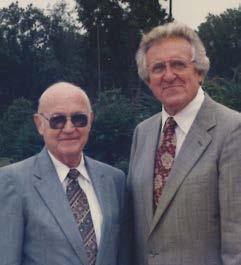
1981 Social worker John Carr (left) & founder Wales Goebel (right) September 26, 1981 Lifeline Children’s Services receives Alabama State License

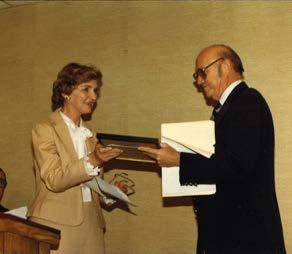
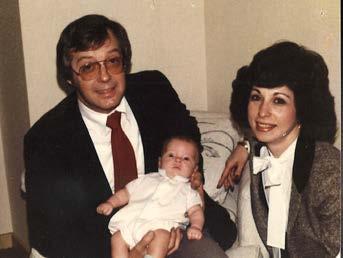
February 19, 1982 Lee and Eugenia Birch, first domestic adoption
2003 Herbie Newell becomes Executive Director 2004 Staff Photo 1984 First maternity home opens in Thorsby, Alabama
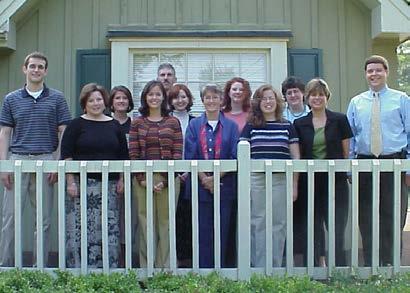
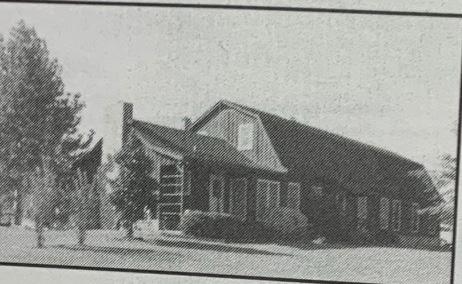
1989 Lifeline joins the National Council for Adoption
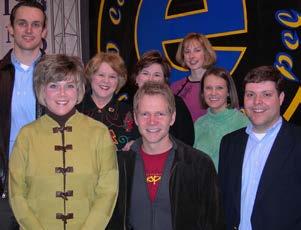
2005 Staff with Steven Curtis Chapman 63 International Adoptions 20 Domestic Adoptions
2007 Accredited by Evangelical Council for Financial Accountability (ECFA)
1992 Lifeline Village opens in Pell City, Alabama
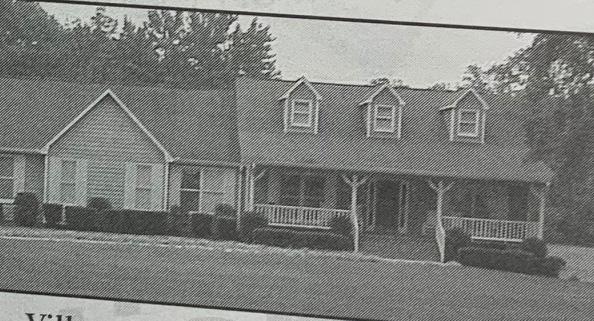

2010 First Hungary Adoption, The McClure Family 1997 Chuck Johnson becomes 2nd executive director 2002 Lifeline helps establish the Alabama Adoption Coalition (AAC) and becomes a founding member
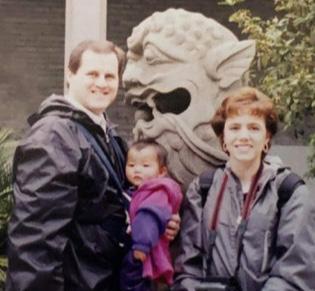
2000 1st International Adoption in China, the Royston Family
2013 1000th Domestic Adoption, The Peyton Family
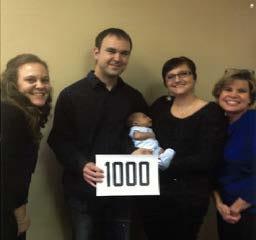
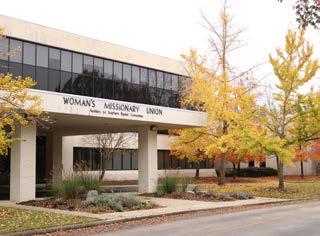
2017 Main Office Moved to the Women’s Missionary Union Building
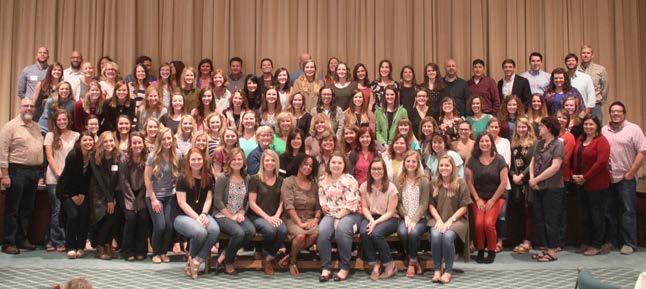
2017 Staff Photo at Staff Retreat
We realized that these children needed ultimately the gospel, but practically they needed life skills, job skills, mentoring, training, education, and opportunity to survive outside of institutions and the streets. Thus, (un)adopted was born to minister to the unadoptable.” At the same time, Lifeline realized a great need existed in domestic ministry for gospel-centered foster care families to minister to children in care and their birth families. In 2009, the first Foster Care ministry began in Alabama, with efforts to provide training and support for foster families.
LIFELINE EXPANDS DOMESTICALLY
As Lifeline continued to grow in our roots of domestic adoption and birth mother ministry, we became licensed in other states to operate with a desire to care for more vulnerable children. Lifeline Village, our home for women in unexpected pregnancies, also added space and an additional location. By 2007, 663 women had heard the gospel and been shown love and hope through these homes. The first decade of the new millennium ended in much the same way as it began, with a firm grasp on our roots. We celebrated the 900th completed domestic adoption.
First Ukraine Adoption, 2003, The Stephens Family
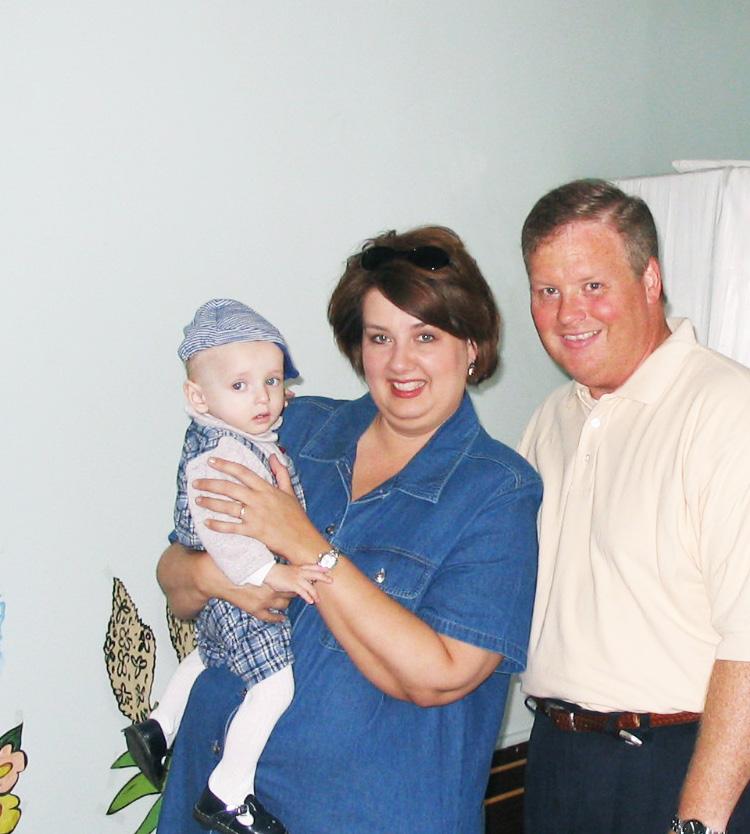
‘10s Climbing out of the economic recession of 20072009, Lifeline maintained a focus on taking gospel hope to vulnerable children and families. Though the recession played a part in the lull of families willing to enter into the adoption process, Lifeline found hope through the expansion of the international program to Costa Rica and Hungary in 2010.
POST-ADOPTION SUPPORT & GLOBAL PARTNERSHIPS GROWTH
The following year we started our Counseling services which opened new doors to reach pre- and post-adoptive and foster care individuals, couples, and families with resources on attachment, trauma, and grief. The staff size grew to 50. Lifeline’s Global Orphan Care ministry arm also grew in 2011 as we walked with King Jesus Church in Busega, Uganda, to open Busega Community School for the Deaf and Blind. The school was the outpouring of the heart of the church and its pastor, Raphael Kajjubi, to vulnerable and orphaned children in their community.
INTERNATIONAL & DOMESTIC ADOPTION GROW
The International Adoption program received a whopping 450 new applications in 2012. Growth necessitated the creation of Crossings, a training-intensive weekend for families entering into the international adoption process. Crossings would later become Rooted in Love™. Rooted in Love equips both international and domestic adoptive families and offers them a time to rest, reflect, and connect with others on the same journey. By 2014, Lifeline had licensed offices in Alabama, Florida, Georgia, Kansas, Kentucky, Mississippi, Missouri, North Carolina, South Carolina, Tennessee, and Washington.
FAMILIES COUNT™
As our domestic programs grew, staff member Traci Newell saw a rising need among families in the U.S. foster care system. At the time, a gospel-saturated program to help families seek reconciliation did not exist. Neither was there an intentional way to connect the Church to these families. Families Count™ was developed to give local churches a platform to bring gospel-based reconciliation to these families. To this day, Families Count equips churches across the U.S. to engage families with the hope of the gospel.
(UN)ADOPTED GROWS & A NEW STRATEGY EMERGES
In the early 2000s, (un)adopted expanded with partnerships in Guatemala, Pakistan, Peru, China, Liberia, Togo, Dominican Republic, Costa Rica, and Colombia. By the end of the decade, partnerships with local churches and orphan care ministries extended to Ukraine, Romania, and India. The first international Families Count training was held in Romania and our first international pastors’ conference in Colombia in 2018. In 2019, the pastors’ conference effort expanded to India. In 2020, Lifeline’s international orphan care focus led to the development of an expanded Global Orphan Care ministry. Altar 84 Global Orphan Care Network and the Global Care Initiative joined (un)adopted as ministry initiatives. Together, these initiatives purpose to empower the Church, equip caregivers and offer gospel hope to vulnerable children and families.
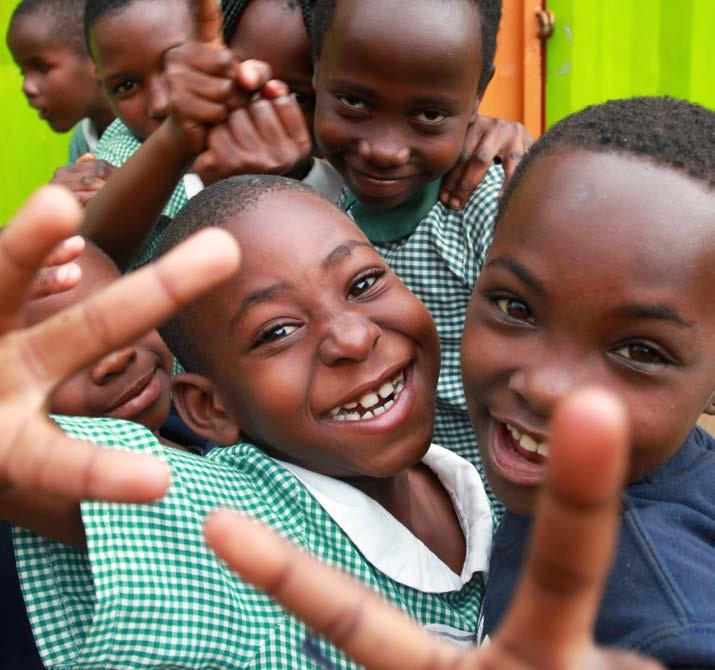
GROWING PAINS AND THE PANDEMIC
We experienced immense growth in the 2010s, but with that growth came growing pains. Because the main office had been separated into two buildings, the efficiency and comradery among staff was challenging. In early 2018, God provided a new office space on the second floor of the Woman’s Missionary Union building in Birmingham, Alabama. Our current Birmingham space allows all the main office staff to work together in one location. Busega School for the Deaf & Blind, 2017
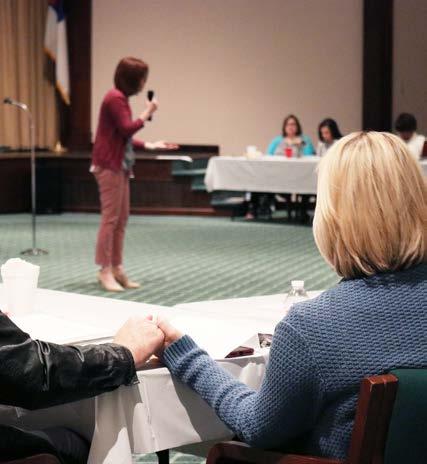
Families Count Conference, 2018
At the start of 2020, no one knew what lay ahead. A world-shaking pandemic affected us all, and Lifeline was no exception. We faced severe financial hurdles and complete overhauls to the way we were able to provide services to the vulnerable. By God’s grace, we saw 32 children come home from Eurasia to their forever families. We completed our 3,000th international adoption. In addition, 43 North Carolina families applied for adoption (the most since licensure in 2013), 48 domestic adoptions were completed, and we came alongside families and children with 934 counseling hours provided.
A NEW DECADE DAWNS
Today, our mission remains the same: “To equip the Body of Christ to manifest the gospel to vulnerable children.” One Ugandan boy that illuminates this hope so well. Mutebi became one of the first students at the Busega Community School for the Deaf and Blind. Now 10 years later, Mutebi is a clear example of the way the hope of Christ transforms us and those around us. He has brought many students with him to the school and shares about his faith in Christ. He’s very active in church and is always willing to help. He’s overcome many health trials. Though his harsh past is part of his story, it does not hinder the bright joy on his face, nor does it hinder the hopeful opportunities he has for his future. “This is when our mission and vision really come alive,” Herbie shared. “When lives are transformed and then we see God use them in strategic ways for the hope of the gospel and the care of the vulnerable for generations to come.”




